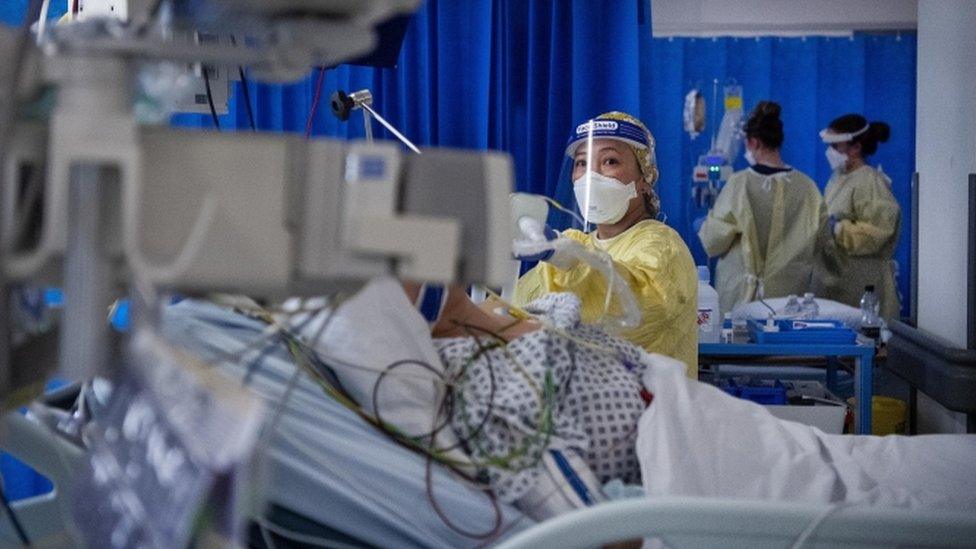Thyroid cancer: Nurse uses own diagnosis to care for others
- Published

Beryl Roberts always wanted to work with cancer patients - then she was diagnosed with the disease herself
There was never any doubt which field of nursing Beryl Roberts wanted to follow.
"All I wanted to do was work with cancer patients and administer cancer treatment. It just fascinated me," she said.
When she was 16, a close family friend died of lung cancer. At that time, treatment was limited and survival rates low.
Beryl was determined to learn more about the disease.
"I was particularly fascinated in why does cancer develop?" she said.
"In the 1980s we were all learning that we shouldn't be smoking… we shouldn't be doing this, that and the other, and we've learned over the years what can cause cancer.
"But for some patients they can do everything they should be doing and they still get cancer, and it just fascinated me, you know - why does a cell develop into cancer?"
She may not have found all the answers she wanted. But after 37 years as a cancer nurse, Beryl - who retires aged 55 at the end of this month - knows more about the disease than most.
And just like the patients she has helped over the last four decades, she also knows what it is like to live with cancer.
'It helped me understand what the patients needed'
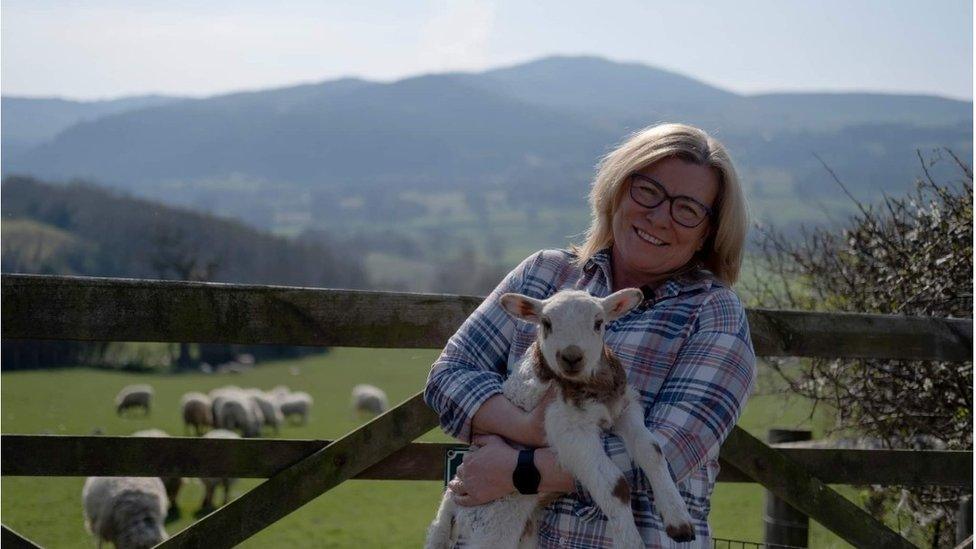
Beryl is looking forward to spending more time on her farm in Conwy
Beryl, who grew up on a farm near Llanrwst in Conwy, was in her late 20s studying for a masters degree on the psychological impact of receiving a cancer diagnosis, when she noticed a lump in her neck.
"I thought it was lymphoma. It wasn't, it was a thyroid cancer. So I ended up having to have a partial thyroidectomy, then full thyroidectomy and radioiodine therapy in Liverpool.
"I was 30 in the December and was diagnosed in the October, so that was my birthday present. I didn't want to be 30 - I wanted to be 20-something forever, but after that I said I would never whinge about getting older."
She beat the cancer and used her experience to help patients.
"It helped me understand what the patients needed. I knew what I needed when I had cancer and I could relate to the patients needing to know what's happening next… to know who they could call if they were unwell, and have a key worker or a nurse who looked after them.
"Back in 1996 when I had a cancer diagnosis there wasn't a key worker… the treatment was over in Liverpool, so it was all very different, and it just helped me understand what the patients were going through."
Cancer treatment breakthroughs
When Beryl started her nursing career in her late teens, north Wales cancer patients were treated in Clatterbridge in Liverpool, where she received her first posting as a staff nurse.
"It was lovely to be there, being able to speak Welsh to patients. Many of them would come in on a Monday and go home on a Friday, and we'd get to know them very well.
"There were no chemotherapy treatments back then.
"But during the next 10 years many chemotherapies were trialled… and they were developed and we'd have maybe one or two new treatments every month or two and we'd have to learn how to administer, get used to delivering the treatment to patients."
As research developed, the chances of cancer survival grew. It is one of the major milestones Beryl witnessed in her career.
"It's amazing. It's just unbelievable where we've come to. Some patients are living well with cancer. They carry on having immunotherapy treatment for many years. It's just unbelievable for our patients and many are cured of it."

Over the years, Beryl has seen many breakthroughs in cancer treatment
The treatment breakthroughs were simply a "vision we never thought would happen" when she started as a young nurse.
"It's like when they said we would all be carrying a computer in our pockets, a personal computer which would do everything for us and we said 'no'.
"It was the same for cancer really, but now we have chemotherapy and treatment regimens for every cancer, from top to toe."
As well as advances in cancer treatment, another development in 2,000 dramatically improved services for patients in north Wales. The opening of the North Wales Cancer Treatment Centre in Bodelwyddan - as well as cancer units in Bangor and Wrexham - also provided an opportunity for Beryl to come back over the border from Liverpool.
"The biggest change is that patients in north Wales now are able to have their treatment in north Wales… across the three sites we deliver 100 treatments every day for patients."
When she finally hangs up her fob watch, the Betsi Cadwaladr University Health Board's head of nursing for cancer services knows she will be leaving a lasting legacy. Her proudest moment was recently securing £1m funding for 25 specialist assistant practitioner nurses to support cancer patients.
"This business case had gone round and round and re-written many a time over the last there years, and finally we have got the funding and the nurses are being recruited. Some have already started."
'It is a lovely, lovely career'
Despite high numbers of experienced nurses like her leaving their NHS posts, Beryl said she is confident about the future of the service, and the health board in north Wales was "fortunate" because "we are able to recruit nurses" in cancer care.
Ever since surviving cancer, Beryl had planned on retiring at the age of 55, but admits the last two years of the Covid-19 pandemic had helped make up her mind.
"The last two years has been very, very tiring… it was unbelievable and I'm in awe of some of the staff that I've seen, in the way they've carried on working, supporting patients and doing what they love."
She will remain as a bank nurse, but plans to spend more time on the family sheep farm.
And despite the challenges, her message for anyone thinking of a career in cancer nursing, is: "It is a lovely, lovely career to do, to be able to make somebody's life a teeny weeny bit better when they're having treatment."

HOW COVID MADE THE SENEDD MATTER: Welsh politics and politicians became interesting
LESSONS FROM LOCKDOWN: How has the experience of lockdown changed us?

- Published11 June 2021
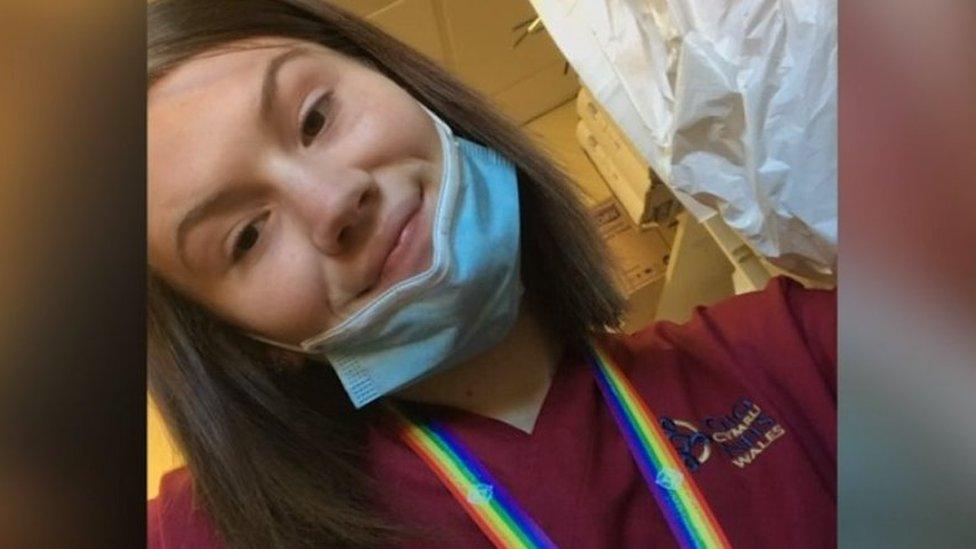
- Published18 February 2021
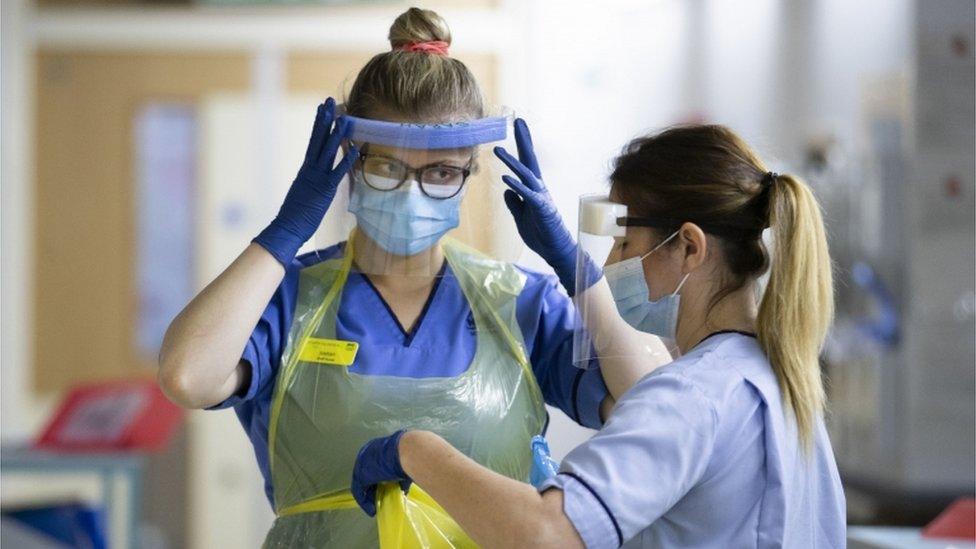
- Published2 April 2021
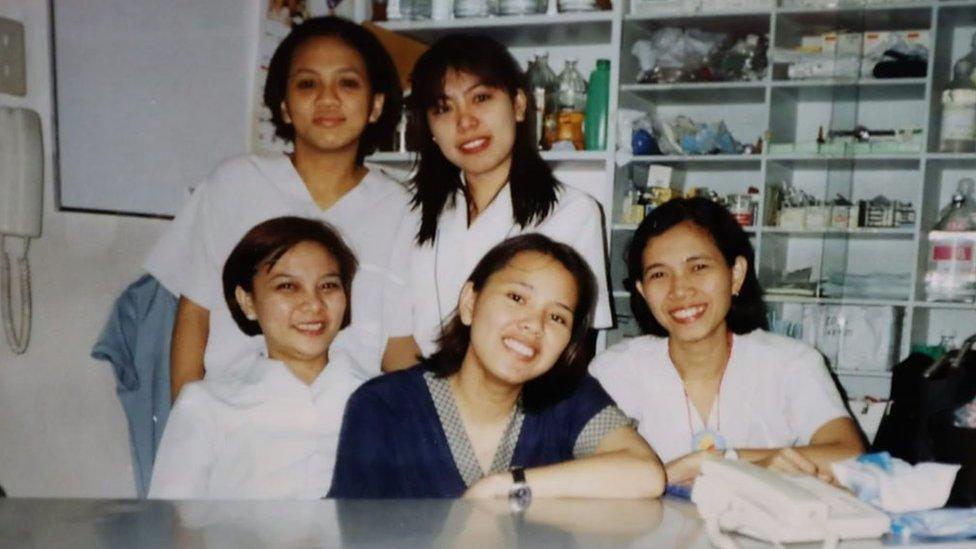
- Published9 March 2021
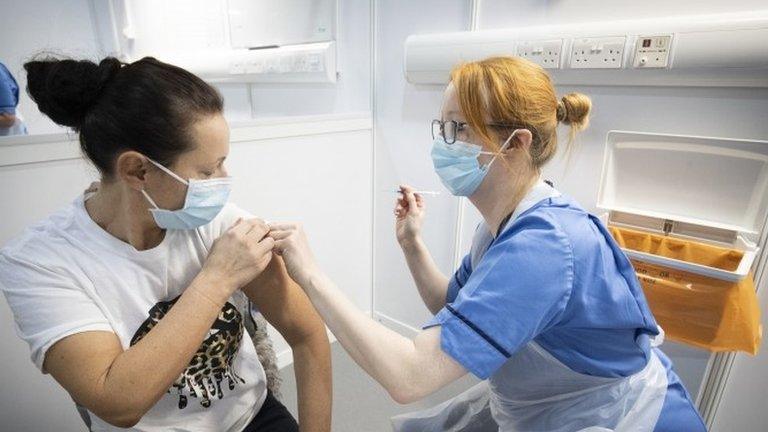
- Published25 January 2021
